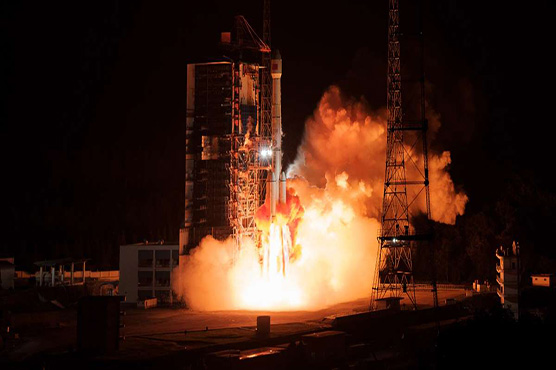China launches high-res satellite able to provide stereo imagery

Gaofen-7 boasts the highest mapping accuracy among its domestic peers.
BEIJING (Reuters) - China launched a new high-resolution remote sensing satellite capable of providing stereoscopic imagery on Sunday, state-run media said, marking another important step as Beijing seeks to reduce reliance on foreign technology in topographic mapping.
A rocket lifted off from the Taiyuan Satellite Launch Centre in northern China at 11:22 a.m. local time, carrying the Gaofen-7 high resolution satellite into its designated orbit, the state-run China Central Television (CCTV) said, citing China National Space Administration.
Gaofen-7, a sub-metre resolution optical satellite, boasts the highest mapping accuracy among its domestic peers, and is able to map China and even the world’s lands stereoscopically with a margin of error of less than a metre, according to CCTV.
The satellite, which will be used for land surveys, urban planning and statistical investigation, will help end China’s reliance on foreign imports in high-resolution stereo mapping, the CCTV added.
The purpose of China’s satellite remote sensing project - the Gaofen series - is to help build an all-weather, 24-hour, global Earth remote sensing system by 2020 capable of monitoring the ground, atmosphere, and oceans, according to CNSA.
The Gaofen project, one of the 16 major projects that are key to the nation’s scientific development, is also aimed at comprehensively boosting China’s self-reliance in accessing high-resolution earth observation data.

